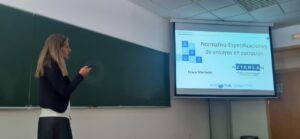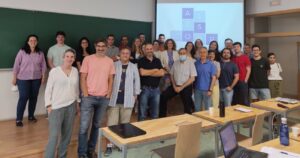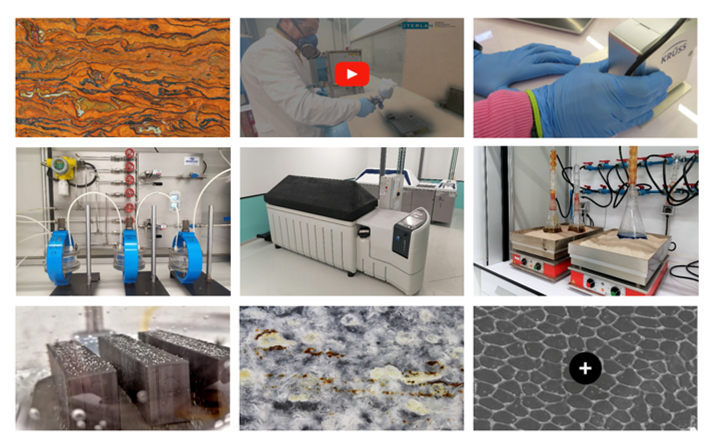Organized by the Spanish Society of Materials SOCIEMAT and the Spanish National Research Council CSIC, the first edition of the course was held at the University of Castilla la Mancha.
PhD. Enara Mardaras, coordinator of the Metallic Materials Corrosión and Protection desearch line of AZTERLAN, has been one of the teachers of the 1st edition of ALESCORR: Course of Specialization in Corrosion organized by SOCIEMAT and CSIC, aimed at training professionals working in the field of materials in the study and prevention of this phenomenon.
As a part of the course, PhD. Mardaras has explained the regulatory framework of reference for the validation of materials and coatings regarding their behavior against corrosion. “International standards define the requirements that materials and coatings must fulfil, depending on their practical application and the environment in which they will have to operate. Knowing these requests and the techniques that are available to obtain that validation is essential for any professional who works in the development of metallic materials and components”.
In her presentation Regulations-Specifications of corrosion tests, the expert from AZTERLAN Metallurgy Research Centre has highlighted the main tests associated with the different international standards and fields of application: test in acid medium (intergranular corrosion and pitting tests), environmental tests (salt spray, condensed steam, climatic cycles), hydrogen susceptibility tests (SSC Sulfide Stress Cracking and HIC Hydrogen Induced Cracking) and electrochemical tests. “While all these tests are part of AZTERLAN’s offer for the metal-mechanical industry to certificate materials, we must not forget that these corrosion tests are also fundamental to advance in the development of materials, offering important keys to work on the optimization of the properties of metallic components”.
This intensive two days course has had a hybrid theoretical-practical approach, also with master classes by professionals from the CENIM National Center for Metallurgical Research, Mondragon Unibertsitatea, the Public University of Navarra, the University of Cantabria, the Complutense University of Madrid, the University of Vigo, and the Eduardo Torroja Building Sciences Institute.

PhD. Enara Mardaras in the begining of her presentation regarding corrosion related specifications and standards.

Participants of the 1st edition of ALSCORR course.


